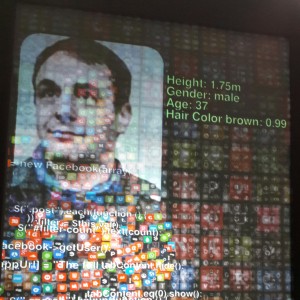My main objective in 2018 was to go deep in Machine Learning (as a way to continue 2017’s focus). When the year started, I decided to organize my free time in small 1-month projects. The original idea was to start with Deep Learning too, but I ended up exploring other fields, like data engineering.
In February I tried different approaches to develop a ML model to solve the famous Titanic Kaggle competition, where you have to predict the survival of different passengers given some data. It was really fun, because I explored different ideas, but I ended with a quite over-engineered notebook. Later I realized how important is to find which are the noisy features that you have to ignore.
In March I decided to improve my python skills so I set a challenge based in intuition: try to group products that are bought together, using real data from work (Ulabox, an online supermarket). I enjoyed creating sparse matrices with scipy and doing matrix operations with numpy, which was a good refresh of maths. The result was a nice dentogram that showed that some vegetables are bought together, as well as some types of yogurt.
In May I created a simple notebook to solve the Titanic competition but with one idea: help my work mates to join a competition and get excited with ML. So I made the most simple code that worked, but at the same time trying to show an eye-catching result. I tried plotting a simple decision tree with a great result: both coworkers joined the session, and other Kaggle users voted up my notebook.
In June I bought a new computer with a GTX1080, getting ready to jump to Deep Learning. I tried some tutorials (Tensorflow and Pytorch), but I didn’t like starting from level 0, that is, creating my own neurons from scratch. Actually I learned about neural networks years ago, at university. Later, almost at the end of 2018 I finally found a book with the level I was looking for: Advanced Deep Learning with Keras.
 Regarding conferences: in July I attended PyData Berlin thanks to my employee (who paid me the tickets). Later in September I also attended DataEngConf in Barcelona, that really matched the needs of my company: make a data engineering plan. In October I took a train to Paris and then another to Karlsruhe to attend PyConDE; this conference was really well organized, with a wide concepts’ talks and in an incredible venue: a digital art museum with thought-provoking expositions about the future we are building.
Regarding conferences: in July I attended PyData Berlin thanks to my employee (who paid me the tickets). Later in September I also attended DataEngConf in Barcelona, that really matched the needs of my company: make a data engineering plan. In October I took a train to Paris and then another to Karlsruhe to attend PyConDE; this conference was really well organized, with a wide concepts’ talks and in an incredible venue: a digital art museum with thought-provoking expositions about the future we are building.
The most interesting books I’ve read this year came as suggestions from conferences’ sessions: one is Lean Analytics and other is Data Engineering Teams. During 2018 I read some non work related books too, most of them sci-fi novels (like The Expanse book 3 and 4).
During summer I continue improving my knowledge of Python, using libraries to create images and videos. Also joined a MOOC about Google Cloud Platform (as a need from work).
I sent 3 papers for different Call for Papers during the year, and was lucky to get selected to do a workshop in November in Barcelona, during the unforgettable PyDay. I prepared a practical introduction to NLP, using classic and modern methods to classify texts. I chose Spanish jokes as the corpus to work on, and the result was amazing: both the audience and myself enjoyed a lot the workshop.
Finally in December I took a rest regarding tech stuff… and got married 🙂